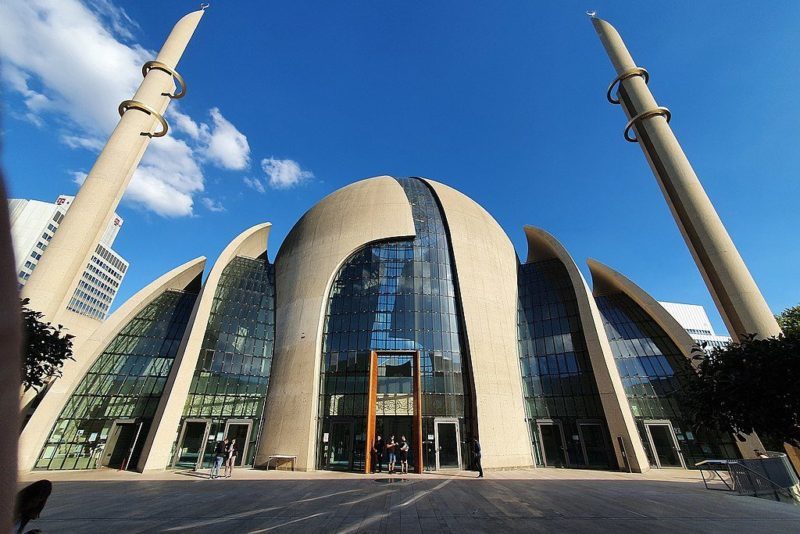
The Central Mosque of Cologne has received permission from city authorities to broadcast its muezzin call to prayer on Fridays. The mosque, which was inaugurated by Turkish Presiden Recep Tayyip Erdogan himself in 2018, is run by the Turkish government’s religious affairs authority in Germany, DITIB, a controversial organization with alleged ties to Islamist extremists.
The first public muezzin call on October 14th drew a lot of media attention.
“We’re very happy,” said Abdurrahman Atasoy, the general secretary of DITIB. “The public call to prayer is a sign that Muslims are at home here.” Henriette Reker, the mayor of Cologne, who gained notoriety in 2016 when suggesting that women, who were being sexually assaulted by young Muslims during New Year’s Eve 2015-16, should keep men “at arm’s length” to avoid harassment, said that allowing the call to prayer was “a sign of respect” for the more than 100,000 Muslims calling Cologne their home.
The pilot project in Cologne is scheduled to last for two years and other mosques have already expressed interest in taking part in it. The agreement with the city allows Mosques to send out a single call to prayer over loudspeakers for up to five minutes, with a decibel level of less than 60.
Unsurprisingly, not everyone welcomed this change. Ahmad Mansour, an expert on integration and Islamism, accused Mayor Reker of “criminal naivety” for permitting the call for prayer. According to Mansour, it is not just about the call to prayer, but about “a demonstration of the power of political Islam.” He believes that conservative Muslims might see this as “an important step towards the Islamization of Europe.” Mansour predicts that further demands, like the introduction of public Islamic holidays, will follow.
However, the Catholic city dean of Cologne, Robert Klein, stressed that the right to free exercise of religion also applies to Islamic communities, which includes the call by the muezzin. But the Islamic theologian Mouhanad Khorchide disagrees. He believes Muslims could also use an app that tells them when to pray. “The call to prayer isn’t part of religious commandments and most Muslims didn’t ask for it,” said Khorchide.
The call to prayer also drew the ire of the head of the right-wing AfD, Alice Weidel. In a tweet, she wrote that “the call of the muezzin means that we as Christians don’t have equal rights, and therefore it goes against our values. In the city of Cologne cathedral, of all places, this is a further affront against our liberal, Christian society.”
A more compromising, albeit ironic, suggestion was presented by the German Jewish commentator and author Henryk M. Broder, who suggested a deal in an interview with Die Welt: “We will let the muezzin sing once church bells ring in Saudi Arabia.” The interviewer expressed her doubts, saying that she “doesn’t know whether that will happen,” to which Broder answered with a smile: “We don’t have to care whether it will happen, but we can wish for it.”
